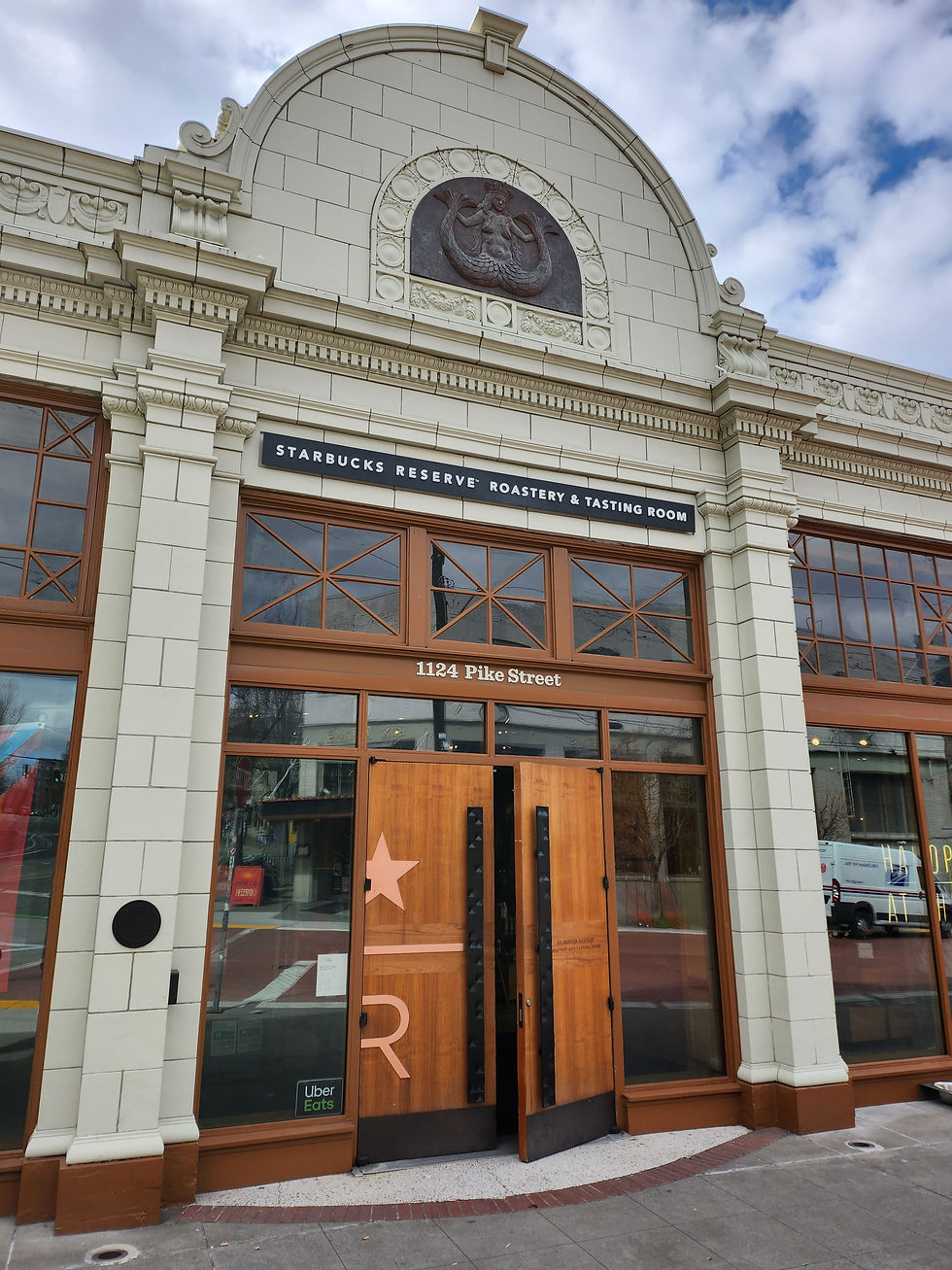When Profit Overshadows Purpose: A Reflection on the Soul of Business
- Paul Cho
- Oct 12, 2025
- 2 min read

I’ve been reflecting on why the news about Starbucks closing its Reserve Roastery in Seattle hit me harder than I expected.
When I was studying at the University of Washington, Starbucks was my favorite place to go — not just for the coffee, but for the experience and the inspiration of ideas too. The smell of freshly roasted beans, the sound of espresso being pulled, the rhythm of conversations — it was a space that invited you to slow down, belong, and be inspired to write.

Years later, visiting the Starbucks Reserve with my wife brought all of that back. We were captivated by the atmosphere, the craft, the artistry of coffee-making — the beauty of people and place coming together. We even brought home two cups with the Starbucks Reserve logos embedded in them from that visit. To this day, they’re our favorite cups to drink from — a small reminder of that special moment on that rainy day in the Reserve.
So when I heard that the Reserve is closing, it felt like more than a business decision. It felt personal. The loss of that store — with all its aroma, warmth, and human touch — feels like a piece of our shared memory disappearing. It’s not just a store that’s shutting down; it’s a chapter in the story of connection that Starbucks once embodied.

Howard Schultz, Starbucks’ visionary founder, once described the company as a “third place” — a space between home and work where people could meet, reflect, and reconnect. It wasn’t just about selling coffee; it was about creating community. That purpose made Starbucks unique and beloved around the world.
Some of the recent changes are understandable — the world is faster, and customers expect convenience. But in the pursuit of efficiency, many stores have lost their soul. Some locations today don’t even have chairs, designed only for drive-thru or mobile pickup. Efficient, yes — but what’s the efficiency for if it empties out the experience that once defined the store?
And that’s the deeper question for every business and organization:
Efficiency for what? Productivity for what? Profitability for what purpose?
Profitability is vital — it keeps a business alive. Milton Friedman once argued that the sole purpose of business is to maximize profit for the shareholders.
But true sustainability doesn’t come from maximizing profit; it comes from stewarding purpose — from aligning financial success with deeper human meaning. When profit serves purpose — the people and the places — all endure: the shareholders as well as the broader stakeholders.
My hope is that Starbucks can rediscover and redeem its original calling — to be that “third place” again. To remind us that even a simple cup of coffee can hold memory, community, and care.
Because when a company finds its soul again, it can flourish — as it was always meant to be.







Comments